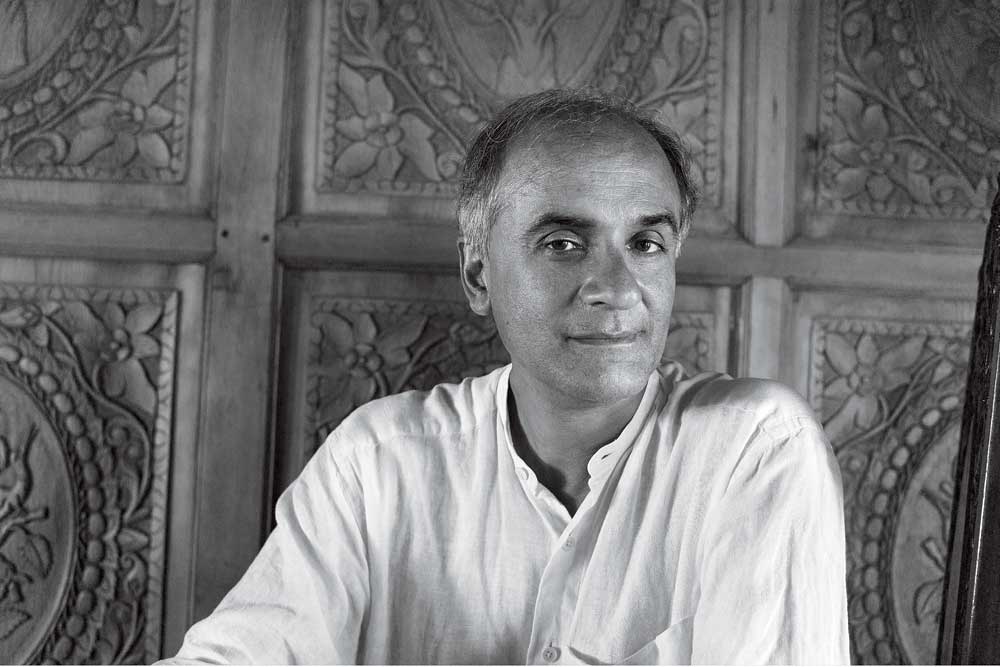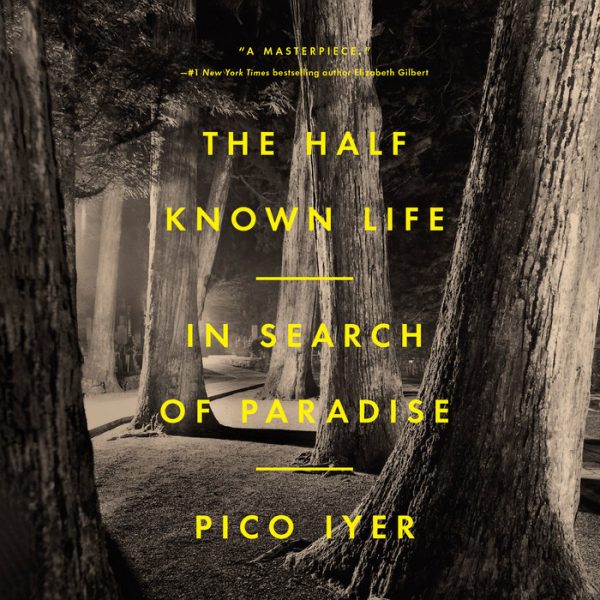
Pico Iyer broadens the idea of paradise, shows we are all bound up in our humanity

Very few travel writers invite you to reflect on the nature of existence as Siddharth Pico Raghavan Iyer, known to the world as Pico Iyer (66), does. In the hands of the British-born essayist and novelist, the act of travel writing becomes a delicate dance between observation and emotion. With a keen eye for detail and a poet’s soul, Iyer is able to capture the essence of a place, the “sound, the smell, the tang,” in a way that transports readers to a world beyond their own.
Iyer doesn’t merely set out to capture the physical details of a place he visits. To him, travel becomes a spiritual experience, a way to connect with something greater than oneself. Through his writing, he invites us to join him on this journey of self-discovery, to witness the beauty and complexity of the world we live in.
The visions of paradise
In Iyer’s hands, a place becomes more than just a destination. It is a living, breathing entity, filled with stories and secrets waiting to be uncovered. And by capturing these moments of fleeting beauty, Iyer reminds us of the power of observation and the importance of living in the present moment.
So, whether he’s wandering the streets of Tokyo or exploring the hidden corners of the Himalayas, Iyer is always searching for that elusive moment of connection, that fleeting feeling that reminds us of our place in the world. And with each word he writes, he brings us one step closer to that elusive goal.

By Pico Iyer
Hamish Hamilton
pp.240, Rs 599
In his latest book, The Half-Known Life: In Search of Paradise (Penguin Random House India), Iyer takes us on a journey through different cultures and explores the concept of paradise in each one. From the orchards of Iran to the bustling streets of Tokyo, Iyer weaves together stories and insights that bring to life the various visions of paradise that exist across the world.
Human longing for something more
One of the most striking things about Iyer’s exploration is how he reveals the diversity of paradise. Rather than seeing it as a fixed idea, he shows us that it is a fluid and ever-changing concept that reflects the values, beliefs, and histories of the people who imagine it. In Iran, for example, paradise is often envisioned as a walled garden, while in Japan, it takes on a more elusive and fleeting quality.
Also read: David Baldacci interview: ‘Writing has always been an addiction, not a means of earning’
What makes Iyer’s latest book truly exceptional is how he connects these diverse visions of paradise. By tracing the threads that run through different cultures, he shows us that despite their differences, they all share a common human longing for something more. Whether it’s a yearning for beauty, peace, or transcendence, Iyer shows us that paradise is ultimately a quest for something that lies beyond the material world.
Early in the book, he reflects on the paradox of paradise in Iran. On the one hand, the country’s rulers proclaim that true paradise can only be attained through sacrifice and self-denial. On the other hand, many of its citizens find their own versions of paradise through sensuous pleasures like romance. Iyer, thus, shows us how paradise is not just a product of culture, but also a site of struggle and contestation.
In Search of Paradise invites us to expand our understanding of paradise beyond the narrow confines of our own culture. Through his insightful writing, we are transported to different corners of the world, including Varanasi in our backyard, and offered a glimpse of the many different ways that human beings have imagined paradise throughout history.
A sense of stillness
Born in Oxford, England, in 1957, Iyer was raised in California, where he attended Eton College and later Oxford University. He has since become known for his writing on global cultures, literature, and travel, having written dozens of books and countless essays for publications such as The New York Times, Time magazine, and National Geographic.
Also read: Why Kannada writer UR Ananthamurthy did not want to live in Modi-ruled India
His life story is familiar to his readers, and episodes are recapped at different points: his childhood in an English boarding school; his parents, scholars of Indian origin, in the U.S.; the fire in his home in California that turned to ash all his earthly possessions, including handwritten notes “that might have made up my next three books”, and the pivotal place in his personal journey that this catastrophe marked; his Japanese wife Hiroko; his proximity to the Dalai Lama.
The quest in his latest book is somewhat similar to some of his previous books. In The Art of Stillness, he writes about the power of finding stillness within oneself and using it as a way to connect with the world in a more meaningful way. This theme is woven throughout much of his work, including his travel writing, where he often seeks out places that offer him the opportunity to travel within.
Also read: Defeating the Dictators: Charles Dunst on the roadmap to reform democracies
In The Global Soul, he dwells on how we can find a sense of home and belonging in a world that is constantly changing. In In Search of Paradise, he concludes that paradise is not a physical place but a state of mind, and that we can find it by being present and cultivating a sense of stillness within ourselves.
The common thread of humanity
Iyer’s writing is characterized by a poetic and reflective style that invites readers to explore their own inner worlds. His ability to find meaning in the mundane, such as a long layover at an airport, has earned him a reputation of a keen observer of the cultural nuances of different places, who is able to convey these differences in a way that is profoundly elegant.
His writing reveals the mysteries that lie at the heart of our existence. Through his writing, he invites readers to look beyond the surface of things and explore the deeper meanings that underlie our experiences.
Iyer’s voice is both intimate and universal, a reminder that we are all part of a greater human story. And that the power of language to connect us is limitless. In a world that can sometimes (okay, make that oftentimes) feel divided and fractured, his words offer a glimmer of hope, underlining that we are all bound together by the common thread of our humanity.

